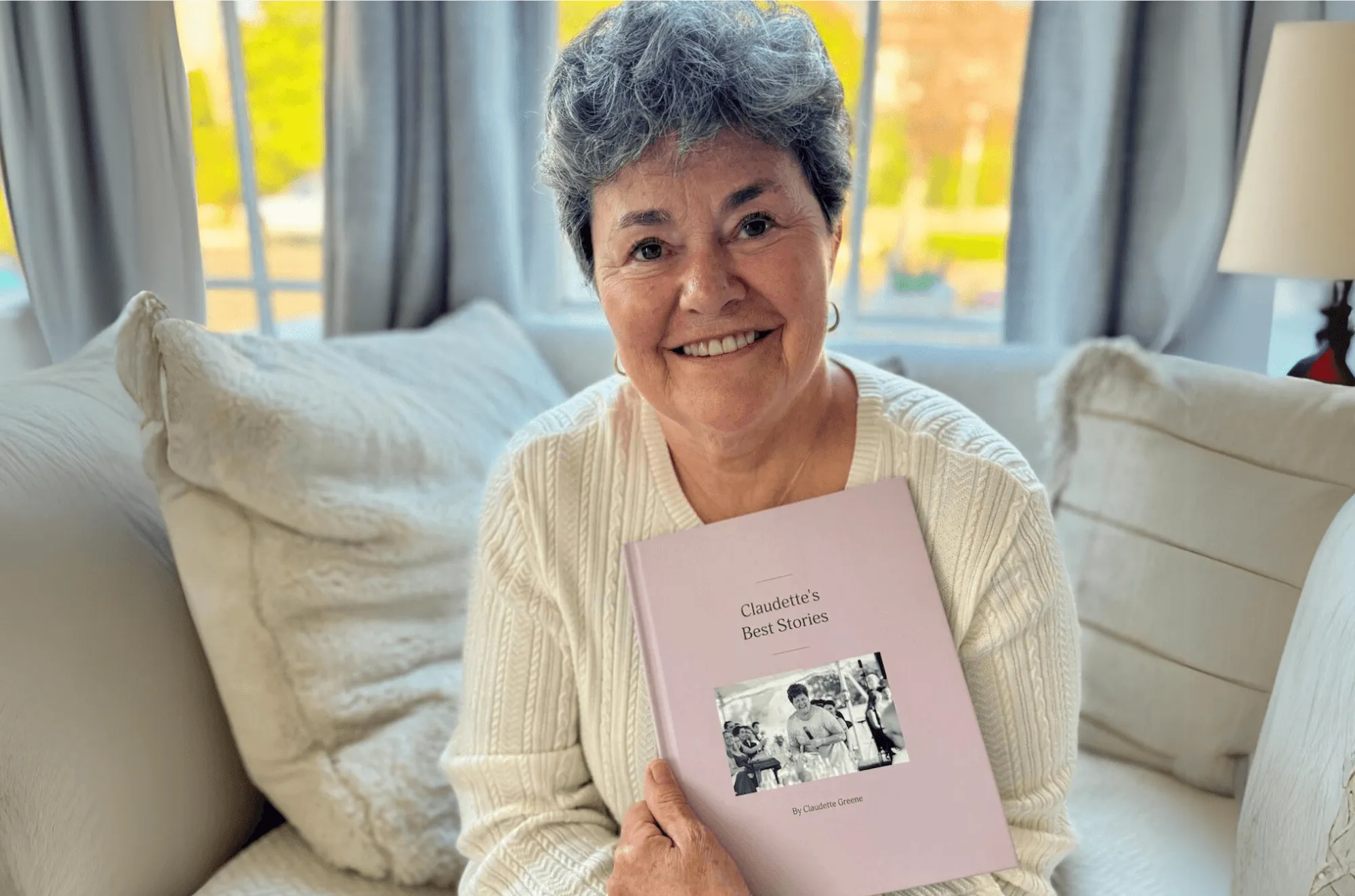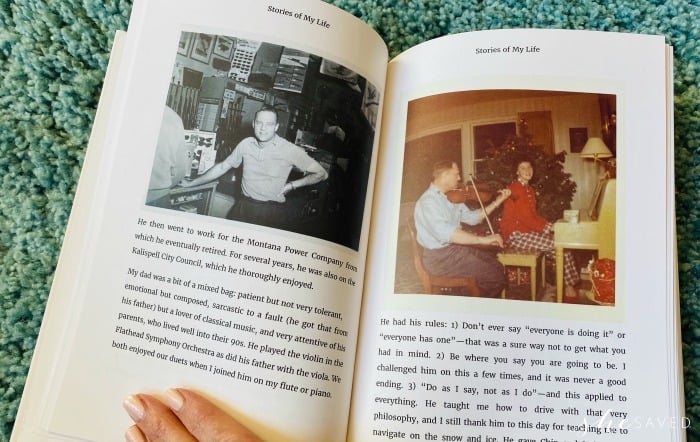Guaranteed to teach you things you never knew.
Is Storyworth® Worth It in 2025? Honest Review and Alternatives
Is Storyworth worth it in 2025? Read our honest review of its dictation feature, pros and cons, and why families are comparing it to alternatives like Remento that capture both written stories and voices.
If you’ve been searching for ways to preserve your family’s memories, chances are you’ve come across Storyworth®. The service has been around for more than a decade and is especially popular as a thoughtful holiday or milestone gift.
But with more families turning to digital-first ways to capture and preserve stories, is Storyworth still the best choice in 2025? Here’s a closer look at what it offers, where it shines, and where it may not live up to expectations — along with alternatives worth considering.
How Storyworth Works
The idea is simple:
- Each week, a family member receives a question by email.
- They respond by typing, or using Storyworth’s dictation feature to speak and have their words transcribed.
- Over the course of a year, those responses add up to 52 stories.
- At the end of the subscription, the stories are bound into a hardcover book.
It’s a structured approach — which can be motivating for some and restrictive for others.
Pros of Storyworth
1. Easy to Gift: The subscription-based model makes Storyworth a convenient present for birthdays, anniversaries, or holidays.
2. Hundreds of Questions: Storyworth’s question bank is extensive, with prompts covering everything from childhood memories to reflections on life’s biggest lessons.
3. Hardcover Book Included: Every subscription comes with one printed book, giving families a tangible keepsake at the end of the process.
4. Dictation Option: The addition of dictation lowers the barrier for those who don’t love typing — making the service more accessible than it once was.
Cons of Storyworth
1. Dictation Requires Significant Editing: Dictation can make storytelling easier for those who prefer speaking to typing, but it often requires substantial editing to read well. Spoken language tends to include pauses, filler words, and unfinished thoughts that don’t always translate smoothly to the page. Families who want polished stories typically need to spend time revising the transcribed text.
2. Recordings Are Not Part of the Final Product: While dictation uses the storyteller’s spoken words, the recordings themselves are not saved. Storyworth converts speech directly into written text, so the final book does not include the storyteller’s actual voice or any audio component.
3. Feels Like a Writing Project: Because the final product is text-only (although photos can be included), families must stay consistent with typing or dictating weekly responses. Over time, this process can feel more like an ongoing writing task than a creative or collaborative experience.
4. Limited Design Control: The finished books have a clean and professional design, but customization options are limited. Families looking to combine stories, photos, and varied layouts may find the format restrictive.
5. Additional Costs for Extra Copies: The initial purchase includes one hardcover book, but additional color-printed copies cost around $79 each — something to consider for families who want to share multiple copies.
Who Storyworth Works Best For
Storyworth is a good fit for:
- Parents or grandparents who like writing: or are comfortable using dictation exactly as they want it to appear in print (since dictation turns speech into a raw, unedited transcript).
- Families who want a straightforward, text-first keepsake: a hardcover book (now in color) with the storyteller’s written answers.
- People who appreciate routine: the one-year cadence of one emailed question per week (52 prompts).
- Gift-givers who want something easy to purchase and set up: especially when a simple, email-based workflow will work well for the recipient.
- Hosts who don’t mind light editing: polishing phrasing, fixing punctuation, and trimming long answers when needed (common with raw dictation).
Storyworth might not be ideal for:
- Relatives who struggle with email-driven tasks: the weekly prompt arrives by email and the experience centers on typed/dictated responses.
- Families who want the actual voice preserved: Storyworth dictation does not save audio; what’s spoken is dropped straight into text only.
- Storytellers who dislike long-form writing projects: the year-long schedule plus text editing can feel like homework to some.
- People who prefer to speak naturally rather than “compose out loud”: because dictation is a raw transcript (no automatic cleanup), they’d need to speak precisely as they want it printed or rely on an editor.
- Anyone with vision, dexterity, or cognitive hurdles that make careful typing hard: dictation can help, but it won’t auto-punctuate or structure messy speech.
Alternatives to Storyworth in 2025
In recent years, new platforms have emerged that take a different approach to memory-keeping. Remento is one such option, designed for families who want to capture not just the stories but also the voices and emotions behind them.
With Remento:
- Storytellers record memories in their own voice or on video.
- Speech-to-Story technology turns those recordings into polished written stories.
- The final hardcover book includes scannable QR codes that link back to the original recordings — letting families read and hear the memories.
This hybrid approach combines the best of both worlds: the permanence of print and the authenticity of recorded voice.
Learn more: Storyworth v. Remento
Final Verdict: Is Storyworth Worth It?
Storyworth has earned its popularity for a reason. It’s easy to gift, it provides structure, and it results in a polished book that families can treasure. For families that enjoy writing and want a purely text-based keepsake, it’s still a solid choice.
But for many, the lack of voice preservation and the reliance on weekly writing make it feel incomplete. Dictation helps, but since it produces raw transcripts without saving the storyteller’s voice, it doesn’t fully solve the problem.
In 2025, as more families value multimedia storytelling, services like Remento may provide a richer, more engaging way to capture and pass down family memories — with both the written word and the authentic voice of the storyteller preserved for future generations.

Their stories, forever at your fingertips
Remento’s life story books turn a parent or grandparent’s memories of the past into a keepsake book for the future - no writing required.
Capture priceless family memories today
Join the thousands of families using Remento to preserve family history, all without writing a word.
.avif)


.avif)
